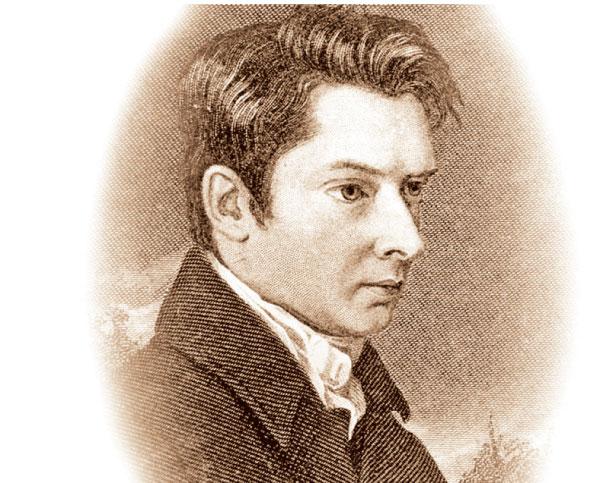
 When I got there, the organ was playing the 100th Psalm, and when it was done, Mr Coleridge rose and gave out his text, “And he went up into the mountain to pray, HIMSELF, ALONE.” As he gave out this text, his voice “rose like a steam of rich distilled perfumes,” and when he came to the two last words, which he pronounced loud, deep, and distinct, it seemed to me, who was then young, as if the sounds had echoed from the bottom of the human heart, and as if that prayer might have floated in solemn silence through the universe. The idea of St. John came into my mind, “of one crying in the wilderness, who had his loins girt about, and whose food was locusts and wild honey.” The preacher then launched into his subject, like an eagle dallying with the wind. The sermon was upon peace and war; upon church and state, not their alliance, but their separation -- on the spirit of the world and the spirit of Christianity, not the same, but as opposed to one another. He talked of those who had “inscribed the cross of Christ on banners dripping with human gore.” He made a poetical and pastoral excursion -- and to show the fatal effects of war, drew a striking contrast between the simple shepherd-boy, driving his team afield, or sitting under the hawthorne, piping to his flock, “as though he should never been old,” and the same poor country-lad, crimped, kidnapped, brought into town, made drunk at an alehouse, turned into a wretched drummer-boy, with his hair sticking on end with powder and pomatum, a long cue at his back, and tricked out in the loathsome finery of the profession of blood:
When I got there, the organ was playing the 100th Psalm, and when it was done, Mr Coleridge rose and gave out his text, “And he went up into the mountain to pray, HIMSELF, ALONE.” As he gave out this text, his voice “rose like a steam of rich distilled perfumes,” and when he came to the two last words, which he pronounced loud, deep, and distinct, it seemed to me, who was then young, as if the sounds had echoed from the bottom of the human heart, and as if that prayer might have floated in solemn silence through the universe. The idea of St. John came into my mind, “of one crying in the wilderness, who had his loins girt about, and whose food was locusts and wild honey.” The preacher then launched into his subject, like an eagle dallying with the wind. The sermon was upon peace and war; upon church and state, not their alliance, but their separation -- on the spirit of the world and the spirit of Christianity, not the same, but as opposed to one another. He talked of those who had “inscribed the cross of Christ on banners dripping with human gore.” He made a poetical and pastoral excursion -- and to show the fatal effects of war, drew a striking contrast between the simple shepherd-boy, driving his team afield, or sitting under the hawthorne, piping to his flock, “as though he should never been old,” and the same poor country-lad, crimped, kidnapped, brought into town, made drunk at an alehouse, turned into a wretched drummer-boy, with his hair sticking on end with powder and pomatum, a long cue at his back, and tricked out in the loathsome finery of the profession of blood:
“Such were the notes our once-loved poet sung.”
And for myself, I could not have been more delighted if I had heard the music of the spheres. Poetry and philosophy had met together. Truth and Genius had embraced, under the eye and with the sanction of Religion. This was even beyond my hopes. I returned home well satisfied. The sun that was still labouring pale and wan through the sky, obscured by thick mists, seemed an emblem of the good cause; and the cold dank drops of dew, that hung half melted on the beard of the thistle, had something genial and refreshing in them; for there was a spirit of hope and youth in all nature, that turned everything into good. The face of nature had not then the brand of JUS DIVINUM on it:
“Like to that a sanguine flower inscrib'd with woe.”
